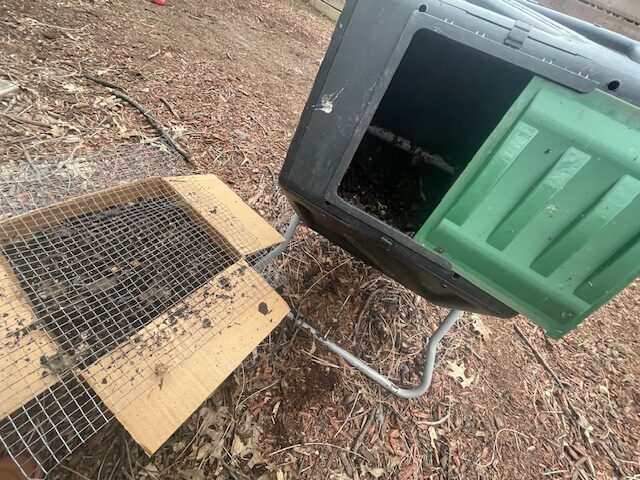
Composting.
I started learning to compost because it’s an excellent way to reduce waste and promote sustainability. Composting not only helps minimize the amount of organic material that ends up in landfills, but it also accelerates the breakdown of these materials, enriching the soil with essential nutrients that my plants need to thrive.
One of the best aspects of composting is its simplicity. All you really need are vegetable scraps, fruit peels, brown paper, dry leaves, and eggshells. For optimal decomposition, I chop my food waste into pieces no larger than two inches. For example, I often use kitchen scissors to cut banana peels into smaller sections, making it easier for the composting process to break them down.
In the images above, you can see the composter and metal mesh I use to filter the compost once it’s ready for my plants. The metal mesh helps separate the finer compost from larger pieces that may still need time to break down. For temporary storage of unfinished compost, a cardboard box works well and is a great way to keep everything organized.
If you have a backyard, I highly recommend using a tumbler composter. This type of composter not only makes turning the compost easy but also keeps pests away, allowing for a more efficient breakdown of waste. In addition, the tumbling motion aerates the compost, which speeds up the decomposition process. Small insects and microorganisms do the hard work of breaking down the waste, so you won’t have to deal with worms if you prefer not to.
Composting is not just beneficial for the environment; it’s also incredibly rewarding. Watching my compost transform into rich, dark soil gives me a sense of accomplishment and connects me to the natural cycle of growth. Plus, it’s a fantastic way to reduce my carbon footprint while providing my garden with the nutrients it needs.
I encourage everyone to give composting a try—it’s an easy and effective way to contribute to a healthier planet!